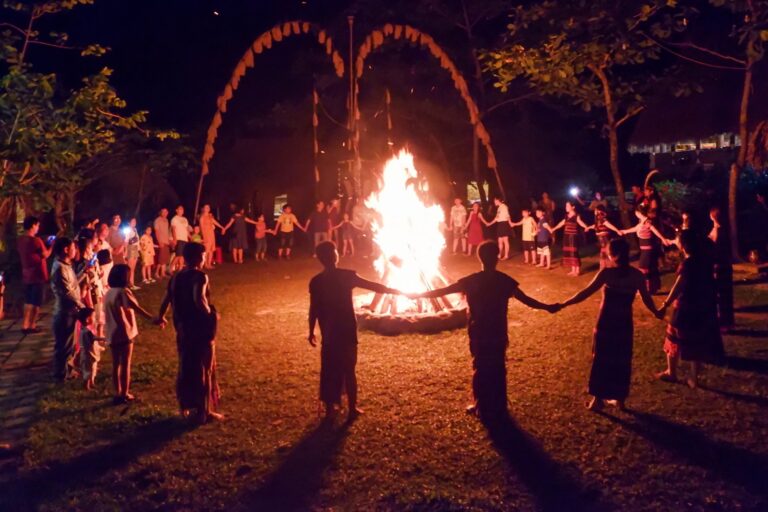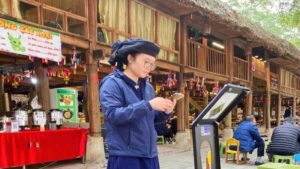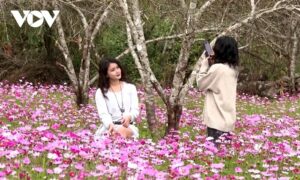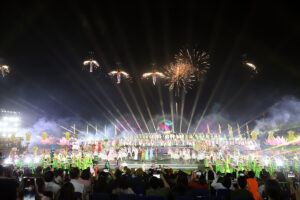A distinctive collection, an attractive space, and appropriate public policies are essential for any museum. For private museums, achieving long-term success involves not only meeting these criteria but also addressing the challenge of funding.
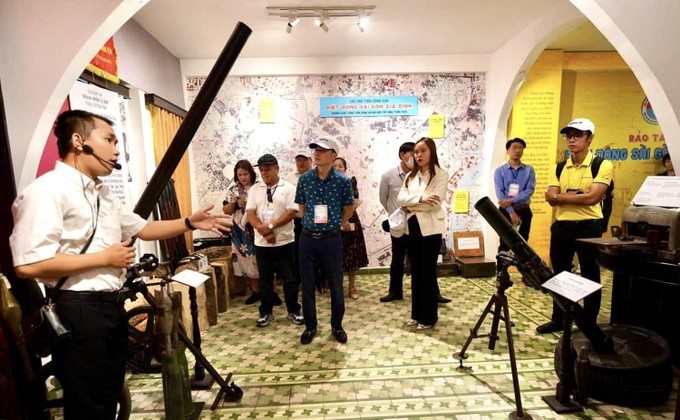
Visitors visit the Saigon Special Forces Museum.
The reason behind high ticket prices
Ticket prices for private museums are often two to three times higher than those for public museums. This disparity is largely due to the financial challenges faced by private museums, where managing expenses is critical for survival. Most private museums are initially backed by a legal entity, which provides the financial foundation for their establishment. The level of investment in the museum depends on the business effectiveness of the sponsoring company, in addition to the existing collection.
This situation has raised concerns among experts, and some museums have already encountered problems. If the company behind a museum becomes involved in financial scandals and is forced to recover assets, the future of the private museum may be at risk. Operating by hosting ancillary events cannot fully cover operational costs. Without specialized activities, the museum loses its cultural and educational value, and the costs of operation and artifact preservation cannot remain in deficit.
However, for a strong ecosystem supporting the growth of the city's cultural industry, I believe government agencies need to focus more on promoting interactions among various cultural institutions, not just between museums. It's important to gradually change the public's perception of museums so that they become not only destinations linked to historical sites but also lively cultural hubs showcasing a diverse range of activities."
Commenting on operational costs Mr. Nguyen Thieu Kien, Director of Quang San Art Museum, said, “Managing operational costs is a significant challenge. Revenue must be sufficient to cover expenses and maintain quality for visitors. At Quang San Art Museum, maintenance, conservation, and event costs are funded through the museum's own activities and events. I hope that in the future, private museums will receive supportive policies to provide additional resources, allowing not only Quang San but also other institutions to enhance domestic cultural and artistic activities."
Concerns about appraisal
Currently, the process of obtaining approval to establish a private museum and the appraisal of artifacts must be managed through the Department of Culture and Sports (or the Department of Culture, Sports, and Tourism, depending on the region). Individuals or organizations wishing to set up a private museum must carefully prepare facilities, fire safety measures, collections, display plans, operational procedures, data storage for artifacts, inventory management, and condition assessments.
In fact, personal collections are often based on individual interests, which can complicate the verification process when establishing a private museum. A representative from the Saigon Special Forces Museum noted, "One of the unique features of our collection at the Saigon Special Forces Museum, but also one of our biggest challenges, is that the artifacts are dispersed across various locations. This is quite different from most other museums, where collections are centralized. As a result, we have had to work extensively, seeking advice from the professional council to coordinate with the Ho Chi Minh City Department of Culture and Sports to ensure that the identification of collections meets regulatory requirements while accommodating the specific characteristics of artifacts related to the museum's display locations."
Artifacts dispersed across various locations, like those at the Saigon Special Forces Museum, can complicate the process of establishing a private museum. However, experts in cultural heritage agree that the biggest challenge for private museums today is accurately identifying and appraising artifacts, particularly historical ones. Unclear or ambiguous origins and dates can negatively affect visitors' experiences. Furthermore, from an educational standpoint, any inaccuracies or confusion is unacceptable.
For instance, at a newly opened private museum in District 1, visitors must pay relatively high ticket prices to access two separate museum sections featuring its two different collections. However, some of the books and documents showcased as unique and original artifacts from the Nguyen Dynasty have raised concerns. These materials are typically considered national archives and can be accessed at National Archives Centers. This has led to questions about whether the books and documents presented as original and unique are truly authentic.
Besides the issue of historical artifact accuracy, private museum collections must be registered to complete the establishment process. However, once operational, the collection owners can exchange or sell items. Any sale or exchange of registered artifacts must be reported to the licensing authority, such as the Department of Culture and Sports (or the Department of Culture, Sports, and Tourism). Although these authorities encourage museums to report new acquisitions, in practice, very few museums actually report adding items to their collections.
Private museums contribute to the cultural landscape and enhance the spiritual lives of the public. However, to ensure these valuable collections reach the public without interruption, effective management and support from various entities are essential.
Truong Le Hieu Dan, a member of the advisory council for the Saigon Special Forces Museum, shared: “Ho Chi Minh City plans to establish a Fund for the Conservation and Promotion of Cultural Heritage. We hope this fund will implement practical action plans that provide more opportunities for cultural institutions, including private museums, to engage in the city's cultural activities. This support not only aids the development of the fund but also allows private cultural organizations to access financial resources, promoting the city's cultural heritage within the broader framework of the cultural and creative industries.”
By Hong Duong - Translated by Thuy Doan



